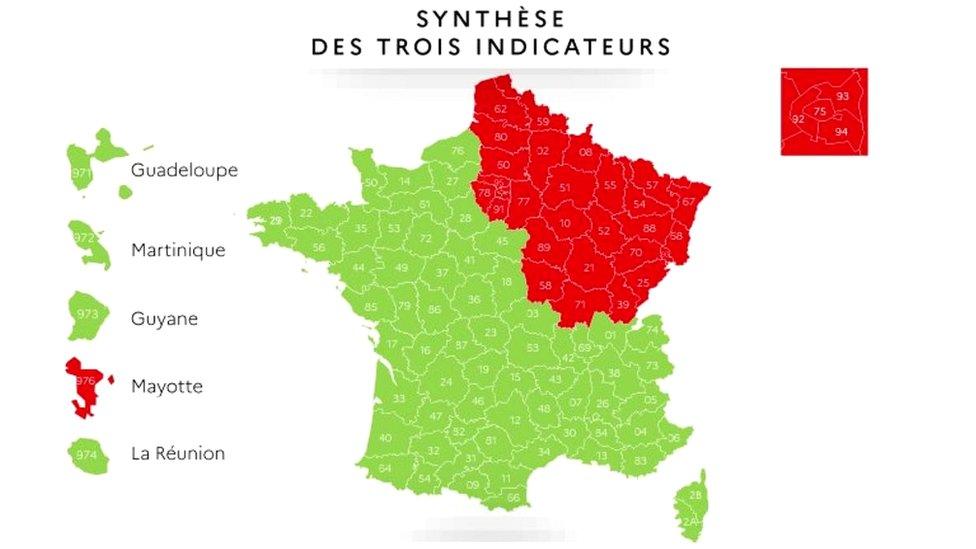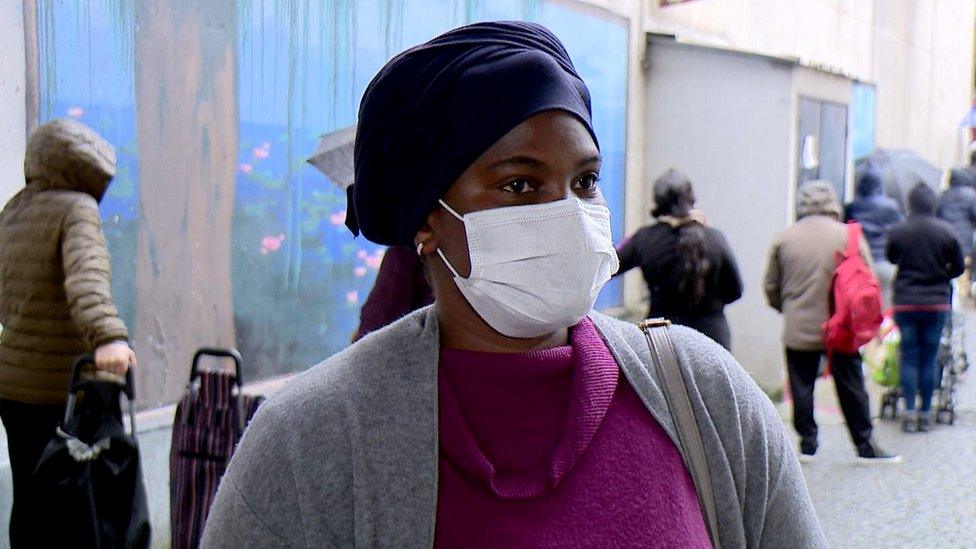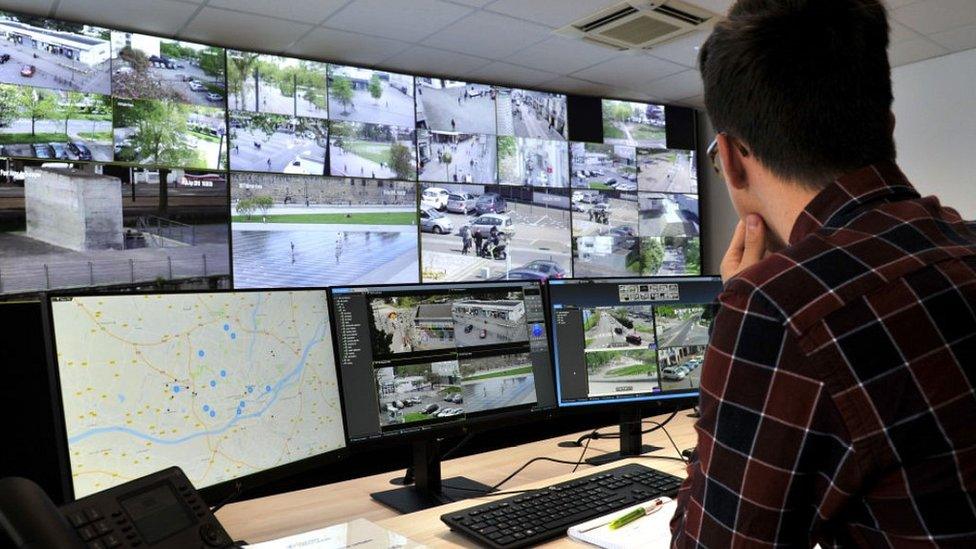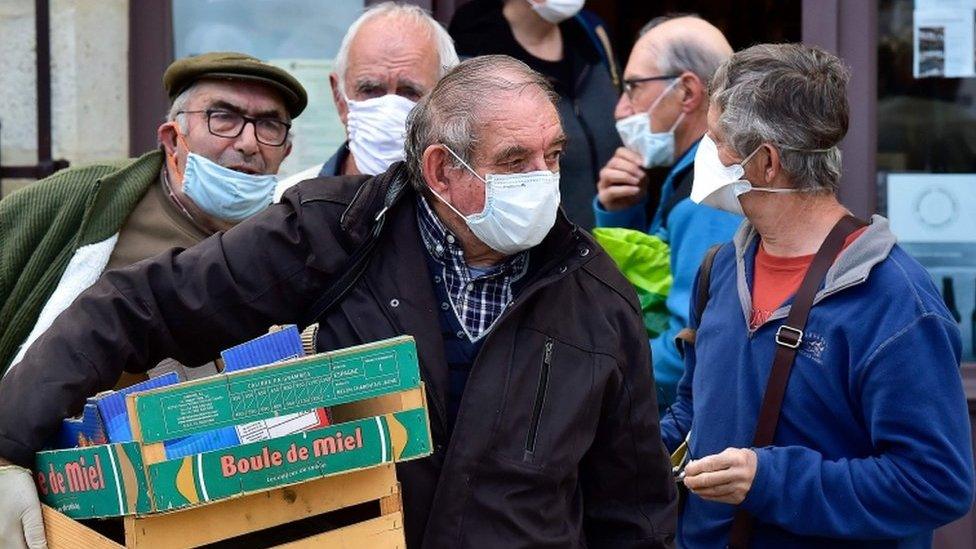Coronavirus: Paris restrictions to stay as France reopens
- Published
Edouard Philippe: "The only way to live is to protect ourselves"
Measures to curb the spread of coronavirus will be kept in place in Paris when the lockdown is eased in other parts of France, its PM says.
Edouard Philippe said the country was "cut in two" in terms of the rate of infections. Restrictions will remain in the capital and north-eastern regions.
It comes as France prepares to relax its lockdown on Monday, with shops and some schools allowed to reopen.
The country has suffered one of the highest Covid-19 death rates in Europe.
Almost 26,000 people there have died from the disease in hospitals and care homes, but the number of new cases has also fallen in recent days.
On Thursday, the health ministry said the virus had claimed 178 lives over the past 24 hours - 100 fewer than a day earlier.
Restrictions - introduced on 17 March - would be lifted over the course of several weeks, Prime Minister Philippe said on Thursday.
"It's good news for France and for the French people," he said.

A SIMPLE GUIDE: What are the symptoms?
HOW MIGHT UK LOCKDOWN END? What will be the 'new normal'?
GERMANY RELAXES MEASURES: Germany says football can resume and shops reopen
TWO COUNTRIES TRY TO SAVE SUMMER: Fast on coronavirus, now they need to save summer
EUROPEAN COUNTRY WITH BIGGEST MORTALITY RATE: Why so many people are dying in Belgium

The government has issued a colour-coded map of the country, splitting the country in half into green and red zones. The map combined infections over the past seven days, stress on intensive care beds in hospitals and testing capacity.
Restrictions will be eased more in the green areas than the red for the time being.
To begin with, primary schools and most businesses will be allowed to reopen in both zones. Cafes, restaurants and secondary schools will be able to reopen in June in the green zones, infection rates permitting, Mr Philippe said.
In Paris and the four adjoining regions - Ile-de-France, Hauts-de-France, Grand Est Bourgogne-Franche-Comte - which comprise the red zone, public parks and gardens will stay shut.

France's PM described a country "cut in two" by the coronavirus
Masks must be on worn on public transport, which will be disinfected at least once a day, and stores will have the right to ask shoppers to wear them. Social distancing rules will also stay in place.
But for the first time since the lockdown began, people everywhere (except the French Indian Ocean island of Mayotte) can go back to work and leave home without downloading a permit.
Video surveillance cameras will monitor how many people are wearing masks and staying at least a metre (3ft) apart.
In other developments in Europe:
Sweden's reported death toll has now passed 3,000. The country did not impose strict lockdown measures and although the toll is higher than in its Scandinavian neighbours it is lower per capita than Britain, France, Spain or Italy
UK PM Boris Johnson is to announce for the first time on Sunday plans to ease the country's lockdown
Restrictions in Moscow are to be extended until 31 May, the city's mayor has said
Germany's Bundesliga will resume on 16 May, the first major European football league to do so
Greece will reopen museums in June, the culture ministry says. Tourism is a vital part of the Greek economy.

You might also like:
Should I wear a mask to stop coronavirus?
- Published7 May 2020

- Published4 May 2020

- Published28 April 2020
